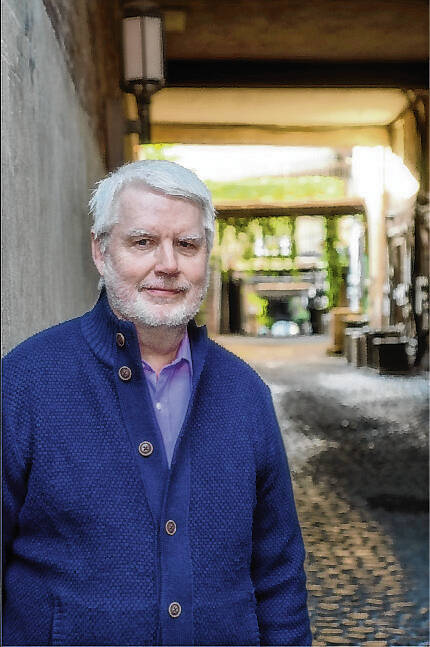My wife has many traits that I admire, but two of her greatest are her strength and her empathy. Like her father, my wife strikes up conversations with strangers easily and manages to put most people at ease. I was reminded of this recently when we were in a local appliance business in northern Wisconsin to buy a stove for our old cabin.
The woman behind the counter was old enough to be retired, but I remembered from an earlier visit that she worked at the shop counter for her nephew, the owner. My wife warmed immediately to the woman, perhaps picking up on the woman’s apology that she needed to retreat to the office to set out her grandson’s lunch. The grandson worked at a nearby factory but managed to come over each day to spend a few minutes with his grandmother. After her grandson arrived and sat down to eat, my wife probably overheard what I did, when she patted him on the back and said softly, “I love you.”
I chalk up what happened next to the bond that some women have with each other. When she saw from our check that we were from Indiana, the woman remarked that her sister lived in a small town in southern Indiana. My wife replied that we’d visited the town, a town known for its beauty.
My wife’s connection with the woman seemed to open a door. The woman relayed that her sister and she were two of thirteen children in their family, and it was clear from the way the woman spoke that the family had struggled financially.
The woman became tearful when she shared that she’d recently called her sister to wish her a happy birthday, adding that she hoped she could go to southern Indiana some year to celebrate the day with her sister.
In a voice marked by pain, the woman then said, “That’s when my sister told me that in her whole life, no one had ever celebrated her birthday.” She shook her head as she said she couldn’t understand how that could be true, given that her sister had grown children and grandchildren living near her. Tearing up, she said that she promised her sister that next year, somehow, she’d be with her and bring a cake.
After the woman gained control, she apologized for sharing her emotions. She probably thought that she’d burdened us, as customers and relative strangers, with her sorrow. That was when my wife said just the right thing. “No, thank you for being real with us.”
It was another 10 minutes of building on that new friendship before we left. Because there were no other customers, the woman followed us into the shop’s small parking area, where, in further chatting, we realized that we knew people in common.
As my wife and I pulled out of the store’s small parking lot, we agreed that we might have saved $100 dollars or more if we’d bought a stove at a big box store, but then we’d have never had that conversation.
All this happened in a horrible week of political violence, when acts and words were driving our nation further apart. I have no idea of the political position of the woman at the store, and she had no idea of our stance. But in those moments inside and outside that little store, this woman, my wife, and I talked about matters that were, in that moment, more important.
When I look at the new stove, I don’t think about the money we could have saved if we’d bought elsewhere. I think of this woman and her vow to give her sister a real birthday next year. I will always think of the new stove as a bargain, giving us more than we spent.
David Carlson of Franklin is a professor emeritus of philosophy and religion. Send comments to [email protected].





